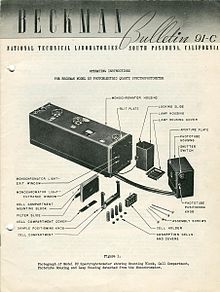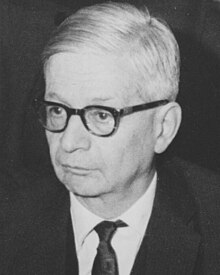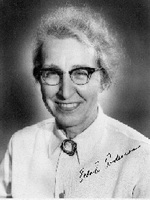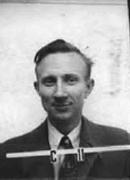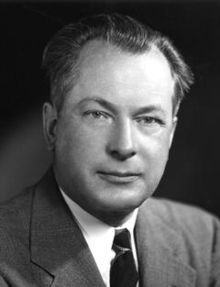Our website is made possible by displaying online advertisements to our visitors.
Please consider supporting us by disabling your ad blocker.
Portal:Physics
The Physics Portal


Physics is the scientific study of matter, its fundamental constituents, its motion and behavior through space and time, and the related entities of energy and force. Physics is one of the most fundamental scientific disciplines. A scientist who specializes in the field of physics is called a physicist.
Physics is one of the oldest academic disciplines. Over much of the past two millennia, physics, chemistry, biology, and certain branches of mathematics were a part of natural philosophy, but during the Scientific Revolution in the 17th century, these natural sciences branched into separate research endeavors. Physics intersects with many interdisciplinary areas of research, such as biophysics and quantum chemistry, and the boundaries of physics are not rigidly defined. New ideas in physics often explain the fundamental mechanisms studied by other sciences and suggest new avenues of research in these and other academic disciplines such as mathematics and philosophy.
Advances in physics often enable new technologies. For example, advances in the understanding of electromagnetism, solid-state physics, and nuclear physics led directly to the development of technologies that have transformed modern society, such as television, computers, domestic appliances, and nuclear weapons; advances in thermodynamics led to the development of industrialization; and advances in mechanics inspired the development of calculus. (Full article...)

An atomic line filter (ALF) is a more effective optical band-pass filter used in the physical sciences for filtering electromagnetic radiation with precision, accuracy, and minimal signal strength loss. Atomic line filters work via the absorption or resonance lines of atomic vapors and so may also be designated an atomic resonance filter (ARF).
The three major types of atomic line filters are absorption-re-emission ALFs, Faraday filters and Voigt filters. Absorption-re-emission filters were the first type developed, and so are commonly called simply "atomic line filters"; the other two types are usually referred to specifically as "Faraday filters" or "Voigt filters". Atomic line filters use different mechanisms and designs for different applications, but the same basic strategy is always employed: by taking advantage of the narrow lines of absorption or resonance in a metallic vapor, a specific frequency of light bypasses a series of filters that block all other light. (Full article...)
Did you know -
- ... that nuclear fusion reactions are probably occurring at or above the sun's photosphere; it is a process called solar surface fusion.
- ... that the submarine telescope ANTARES, intended to detect neutrinos, may also be used to observe bioluminescent plankton and fish?
- ... that a touch flash releases about a billion photons a second far less than produced in a particle accelerator?
Selected image -
Johannes Kepler (December 27, 1571 – November 15, 1630) was a German mathematician, astronomer and astrologer. A key figure in the 17th century scientific revolution, he is best known for his eponymous laws of planetary motion, codified by later astronomers, based on his works Astronomia nova, Harmonices Mundi, and Epitome of Copernican Astronomy. These works also provided one of the foundations for Isaac Newton's theory of universal gravitation. During his career, Kepler was a mathematics teacher at a seminary school in Graz, Austria. Later he became an assistant to astronomer Tycho Brahe, and eventually the imperial mathematician to Emperor Rudolf II and his two successors Matthias and Ferdinand II. He was also a mathematics teacher in Linz, Austria, and an adviser to General Wallenstein. Additionally, he did fundamental work in the field of optics, invented an improved version of the refracting telescope (the Keplerian Telescope), and mentioned the telescopic discoveries of his contemporary Galileo Galilei.
-
A 1610 portrait of Johannes Kepler by an unknown artist
-
Kepler's Platonic solid model of the Solar System from Mysterium Cosmographicum (1600)
-
Close-up of inner section of the model (to the right)
Related portals
February anniversaries
- 15 February 1564 – Galileo Galilei's birthday
- 18 February 1745 – Alessandro Volta's birthday
- 15 February 1786 – Cat's Eye Nebula discovered
- 18 February 1838 – Ernst Mach's birthday
- 11 February 1847 – Thomas Edison's birthday
- 23 February 1855 – Carl Friedrich Gauss's death
- 22 February 1875 – Heinrich Hertz's birthday
- 28 February 1901 – Linus Pauling's birthday
- 18 February 1967 – J. Robert Oppenheimer's death
- 13 February 1910 – William Shockley's birthday
- 15 February 1988 – Richard Feynman died
- 28 February 2020 – Freeman Dyson's death
General images
Categories

Fundamentals: Concepts in physics | Constants | Physical quantities | Units of measure | Mass | Length | Time | Space | Energy | Matter | Force | Gravity | Electricity | Magnetism | Waves
Basic physics: Mechanics | Electromagnetism | Statistical mechanics | Thermodynamics | Quantum mechanics | Theory of relativity | Optics | Acoustics
Specific fields: Acoustics | Astrophysics | Atomic physics | Molecular physics | Optical physics | Computational physics | Condensed matter physics | Nuclear physics | Particle physics | Plasma physics
Tools: Detectors | Interferometry | Measurement | Radiometry | Spectroscopy | Transducers
Background: Physicists | History of physics | Philosophy of physics | Physics education | Physics journals | Physics organizations
Other: Physics in fiction | Physics lists | Physics software | Physics stubs
Physics topics
Classical physics traditionally includes the fields of mechanics, optics, electricity, magnetism, acoustics and thermodynamics. The term Modern physics is normally used for fields which rely heavily on quantum theory, including quantum mechanics, atomic physics, nuclear physics, particle physics and condensed matter physics. General and special relativity are usually considered to be part of modern physics as well.
More recognized content
Associated Wikimedia
The following Wikimedia Foundation sister projects provide more on this subject:
-
Commons
Free media repository -
Wikibooks
Free textbooks and manuals -
Wikidata
Free knowledge base -
Wikinews
Free-content news -
Wikiquote
Collection of quotations -
Wikisource
Free-content library -
Wikiversity
Free learning tools -
Wikivoyage
Free travel guide -
Wiktionary
Dictionary and thesaurus
Sources
Portals on Wikipedia
Previous Page Next Page








